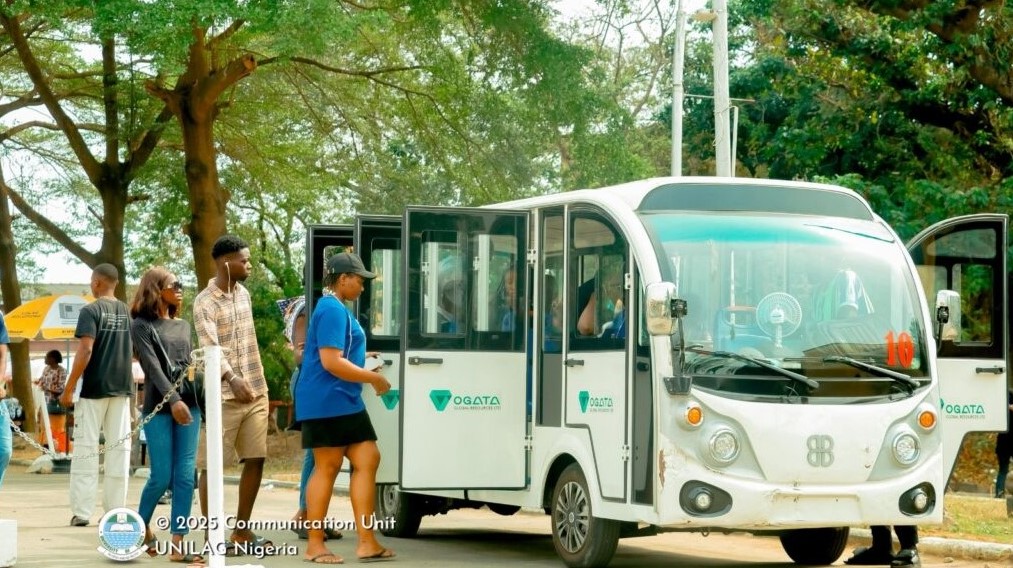







































TETFund to roll out electric campus shuttles across 12 selected tertiary institutions by November
 2024
2024
 2024
2024
The Tertiary Education Trust Fund (TETFund) has revealed plans to roll out electric vehicles across 12 selected Nigerian campuses by November. The move is part of its intervention plans to alleviate mobility challenges faced by students across Nigerian tertiary institutions.
In a Tuesday disclosure by the Executive Secretary of TETFund, Arc. Sonny Echono, during the National Association of Nigerian Students (NANS), explained that the initiative is to ease risks and expenses faced by students in their movement on campus. He added that the plan is part of President Tinubu’s agenda to improve the welfare and learning conditions of Nigerian students.
“Students currently face many risks and spend so much time moving around campuses, especially those who live off-campus. From next month, we will be launching electric vehicle services in selected institutions,” he added.
Enoho stated that electric vehicles come with a low transportation cost since they aim to ease the cost of living and ensure affordability for students. He maintained that the vehicles will be managed by students themselves to ensure accountability and sustainability.
Alongside the planned electric vehicles rollout, there’ll be the installation of charging stations for the smooth running of the shuttles.

The project is also part of the federal government’s intervention to address power supply, accommodation, and learning infrastructure across Nigerian tertiary institutions. The plan comes within its effort to improve the quality of tertiary education and support through the National Student Loan Scheme through NELFund.
“The President challenged us to improve the conditions under which our students study, from hostels and classrooms to how they commute. We are massively investing in student hostels across 72 institutions and will begin commissioning more projects from December,” he said.
The NelFund scheme, rolled out in May 2024, has seen over 282 institutions and over 850,000 students successfully onboarded on the platform. As of 26 September 2025, over N107 billion has been disbursed across 231 institutions, with N61 billion as institution fees and N46 billion as allowance.

Echono explained that TETFund is introducing investment support for learning equipment. This will see increased support for research laboratories, digital learning systems, and sustainable power projects to strengthen the quality of higher education.
“We are building multi-purpose research laboratories across universities, in Kano, Port Harcourt, Lagos, and Abuja, so that Nigerian researchers can conduct world-class research without having to send samples abroad,” he added.
Also Read: Nigeria partners Morocco for local production of electric vehicles.
UniLag and FedPoly Offa championed electric vehicles
The University of Lagos (UNILAG), Nigeria, recorded a major breakthrough in sustainable transportation after rolling out electric vehicles in partnership with Ogata Global Resources and Chart Eco Global Services in January 2025.
According to the university, the initiative started with an initial fleet of just 10 buses, covered more than 102,000 kilometres, and achieved a reduction of 16.78 metric tons of CO₂. Later on, it expanded the fleet by 20 electric vehicles, bringing the total to 30 with a projected mileage coverage of 700 kilometres.
The expansion positions UNILAG to achieve a projected 124 metric tons reduction by the end of 2025.
The UNILAG electric vehicle initiative set a national benchmark for a cleaner and more inclusive mobility for higher institutions of learning. It also marks one of many green steps the university is taking to cut transportation costs, carbon and build a healthier campus.

In the same vein, the Federal Polytechnic, Offa, unveiled an indigenous electric vehicle, the OKIN EV1, in August.
According to the polytechnic, the electric vehicle, fully powered by electricity and complemented with a solar-energy feature, can cover up to 125 kilometres on a single charge. This is equivalent to a round trip from Offa to Ilorin, the capital city of Kwara state.
The OKIN EV1 is equipped with modern features, including a touchscreen display for real-time monitoring and control, a reverse camera for enhanced safety, and a solar-powered extension system to prolong driving hours.
The project began in 2024 and was completed in under six months.

